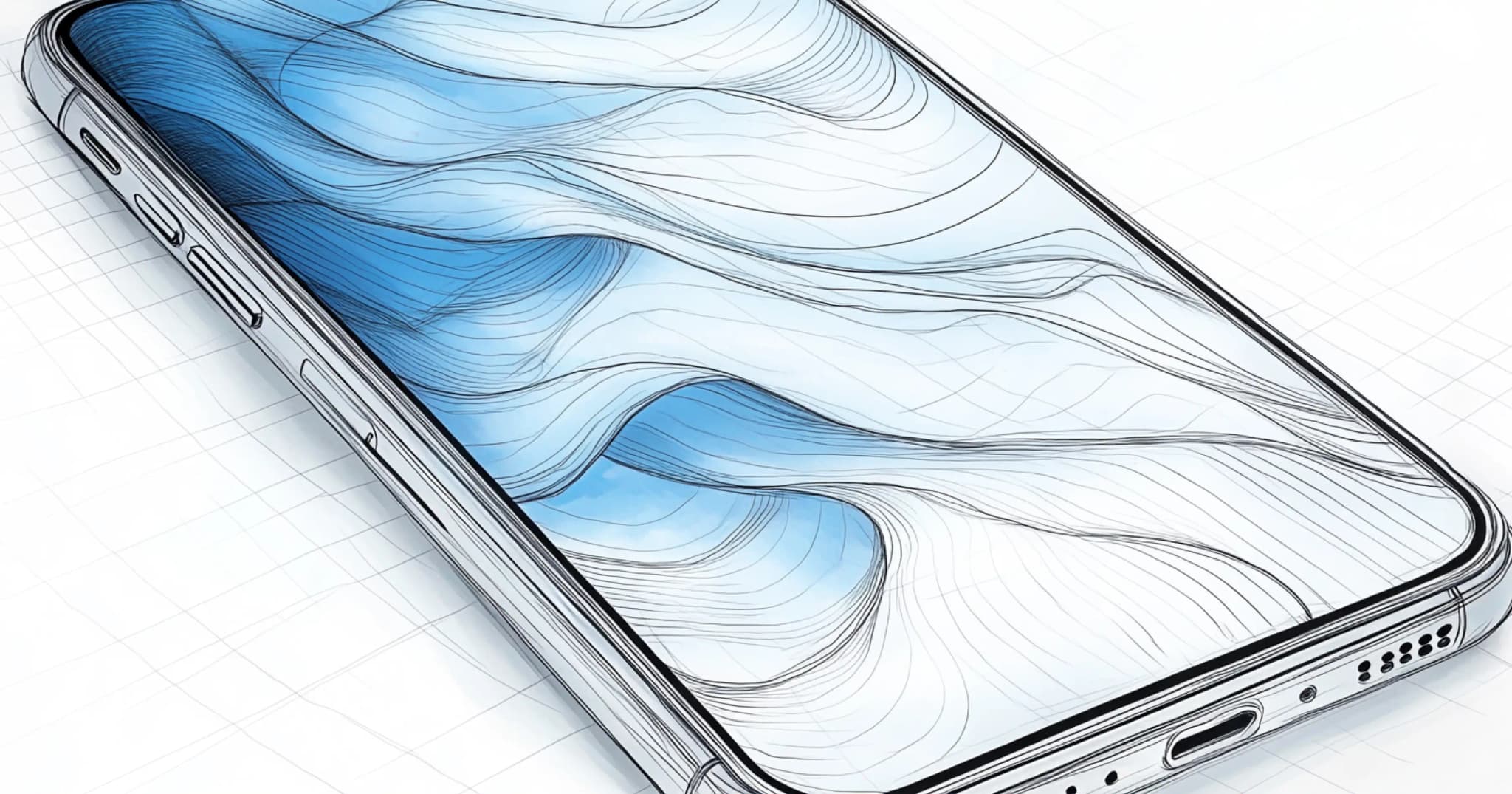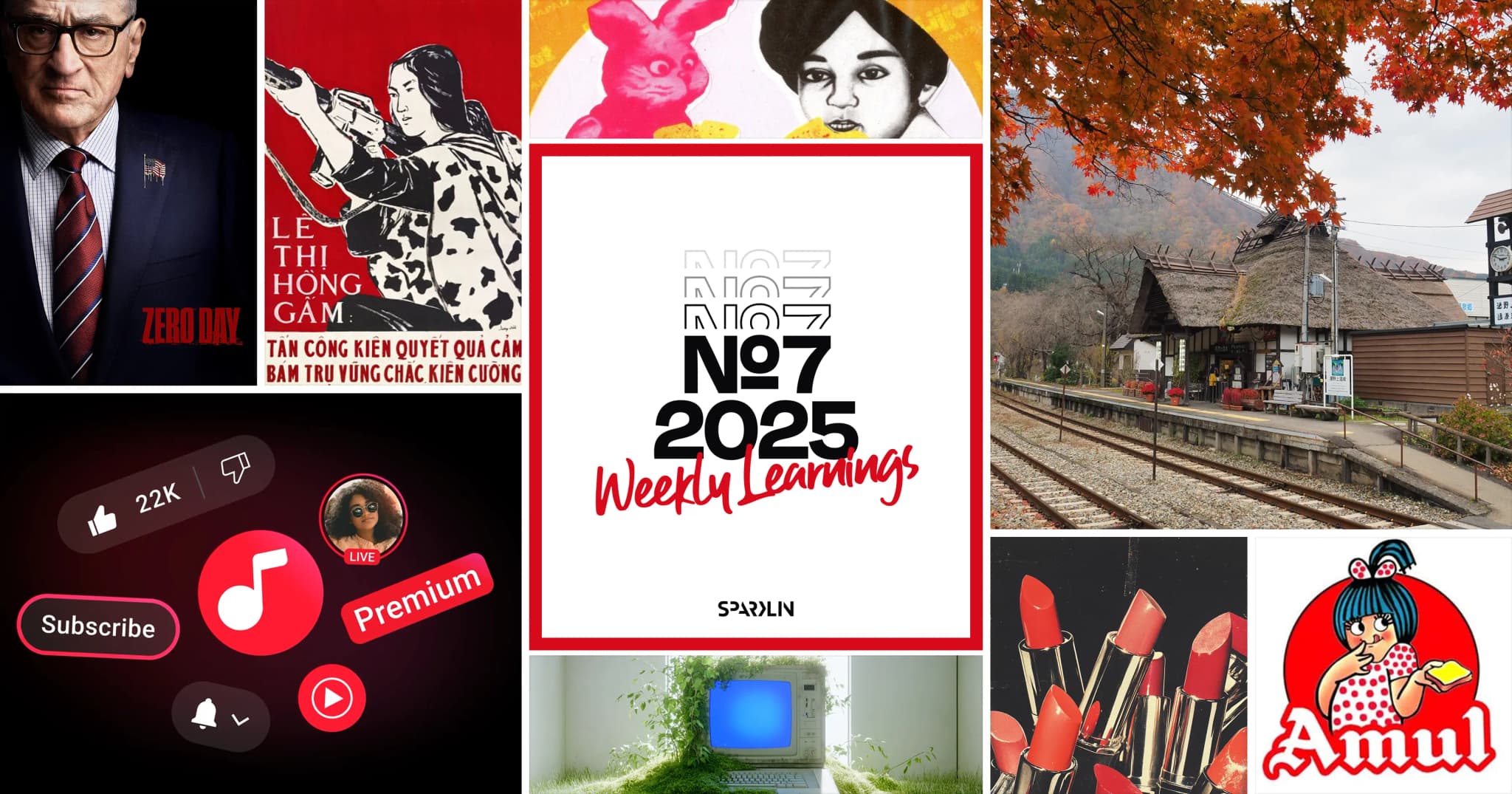ChatGPT, Claude, and Perplexity feel like magic—instant answers, tailored just for you.
Give them time, and they’ll help you pick your next favorite toothpaste. Because you told them everything, one prompt at a time.
And now, they know you better than Google.
A decade ago, if you needed a recipe, you searched Google.
What you got was a 2,000-word blog post about someone’s grandmother, her cat’s favorite pasta, and a 400-step backstory—before the first ingredient even showed up.
We didn’t question it.
That was the internet. You scrolled, browsed, and eventually found what you were looking for.
Today, it’s different.
You open ChatGPT—or whichever AI tool you prefer.
You type “lasagna recipe.”
And it gives you the answer. Fast. Clean. No fluff. No ads. No cookies.
It feels effortless.
And that’s how most breakthroughs begin—warm, free, and full of promise.
Until the bill shows up.
The First Search Engines
Google was not the first search engine.
Before it became the homepage of the internet, things were… weirder.
The early web wasn’t searchable in any real sense. You had to know where you were going.
Web directories were hand-curated (shoutout to Yahoo!), and finding anything felt like solving a puzzle with missing pieces.
Then came the first wave of search engines—each trying to bring order to the chaos.
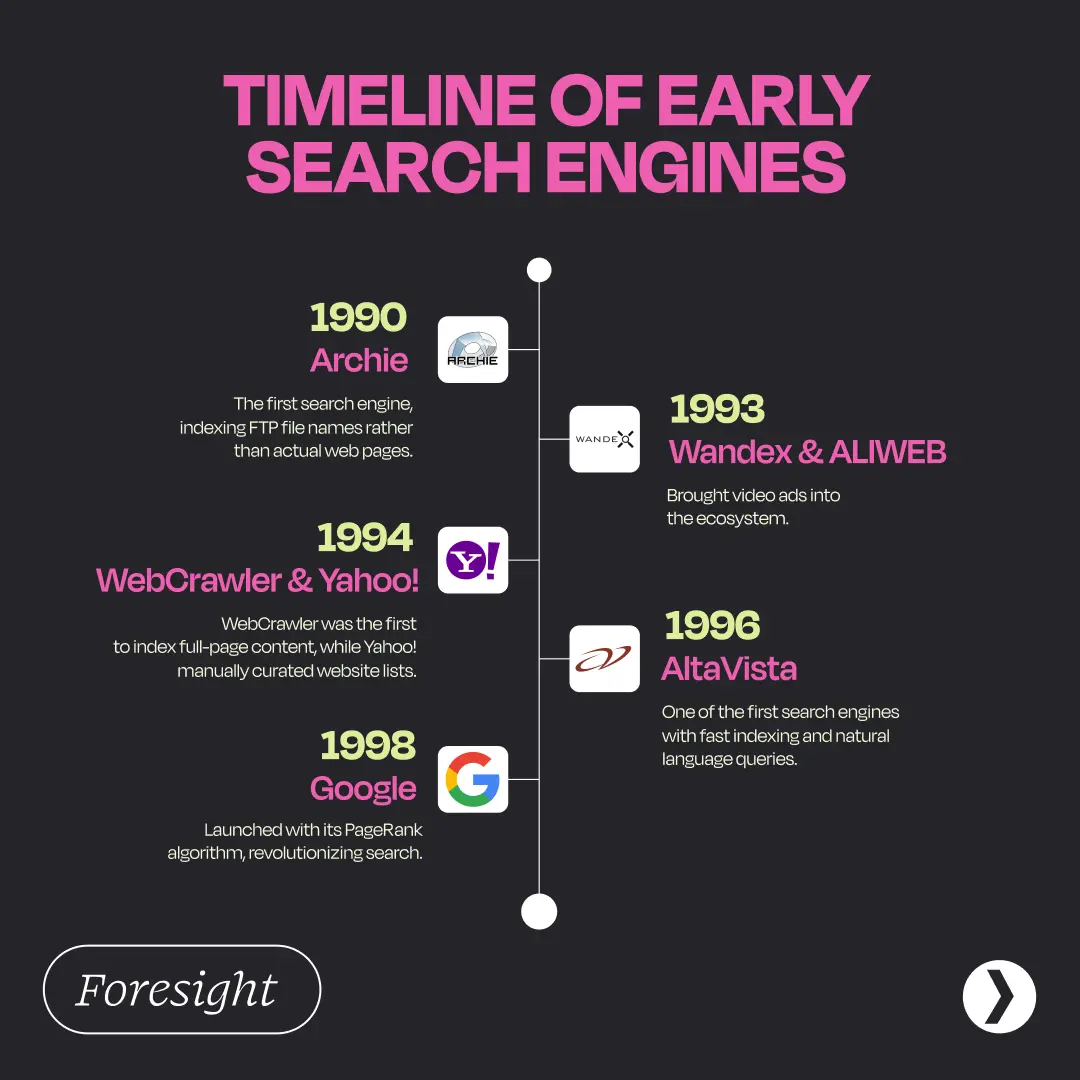
They were like librarians who knew the Dewey Decimal System… but hadn’t read a single book.
They could point you to a shelf, not the best title.
So you searched. Then scrolled. Then guessed.
Finding anything useful meant wading through poorly ranked pages and keyword soup.
That changed in 1998.
Google entered the scene—not just indexing the web, but ranking it based on trust.
Suddenly, you didn’t just get results.
You got relevant ones.
And for the first time, the internet felt searchable.
The Empire Google Built (And What Comes After)
PageRank was a simple idea with a profound impact: If credible sites linked to you, maybe you were credible too.
Unlike early search engines that relied on keywords alone, PageRank treated links like votes—weighted by authority, not just quantity. It measured trust, not noise. If Page A linked to Page B, it was interpreted as an endorsement.
Such an algorithm didn’t just help with indexing, but also organizing. Suddenly, the internet wasn’t just a digital filing cabinet—it had structure, hierarchy, and meaning. Search results felt relevant, even personal. Making the web searchable was only the beginning.
By the early 2000s, curiosity became a business model for Google. Google AdWords turned your questions into bidding wars—advertisers paid to show up when you searched.
AdSense did the same on the other side: It let blogs, news sites, and even hobby pages earn money by hosting those ads.
Everyone wanted to rank. Everyone wanted a piece of the pie.
This wasn’t some grand evil scheme. In the beginning, it felt almost symbiotic—a quiet agreement between you and the machine. You typed a few words into the void. The void hummed back. You clicked.
Somewhere, in rooms you’d never see, someone, usually a corp, got paid. Google took its cut. And on most days, you walked away with exactly what you came for.
Then came the scale.
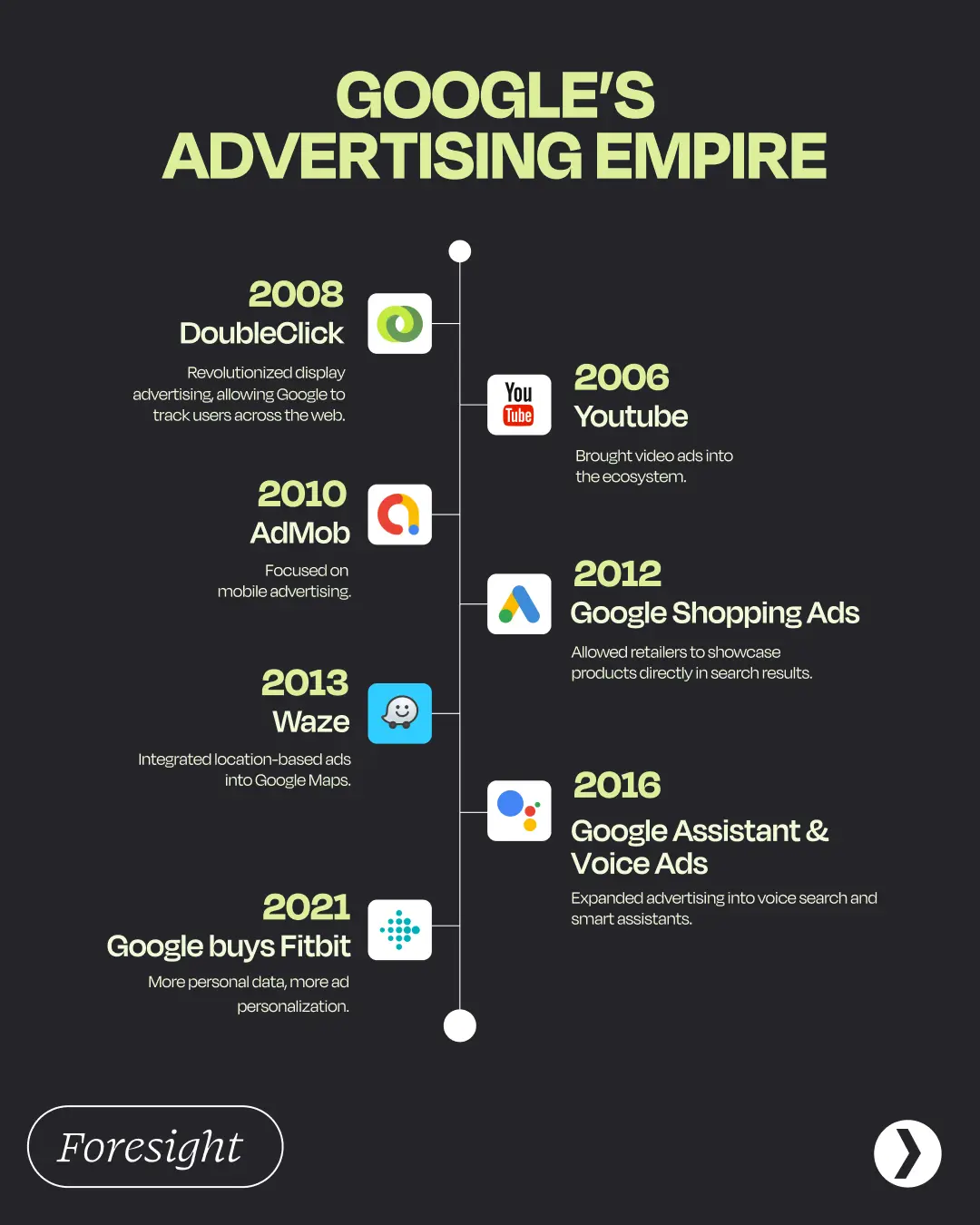
- Chrome wasn’t just a browser—it let Google see how people moved across the web.
- Android wasn’t just a phone system—it helped Google reach billions of pockets.
- YouTube, Maps, Gmail—each one collected more data, showed more ads, and learned more about you.
Every click, scroll, and watch fed the engine.
By the 2010s, Google wasn’t just helping you navigate the internet. It was the starting point for questions. The gatekeeper of knowledge. The middleman between curiosity and clarity.
Empires built on attention rarely age well. Soon, search slowed, answers hid, ads climbed higher, and real results sank beneath layers of monetization.
But the spark? That quiet thrill of discovery, of the internet revealing itself to you—that dulled. The same machine that once cut through the clutter had begun to generate it, feeding itself with distraction in place of direction.
Finding real answers meant picking through layers of sponsored links and keyword-stuffed pages.
The Shift to AI — Ask, and Ye Shall Receive
Human curiosity killed Google’s competition—Altavista, Ask Jeeves, Yahoo Search, even Bing all fell behind as Google delivered faster, cleaner, and more relevant answers. People weren’t just browsing; they were searching with intent, and Google became the oracle.
But what happens when curiosity finds a new companion? One that doesn’t point to the answer—but becomes it?
One that doesn’t wait for you to phrase the perfect query, but understands context, nuance, and intent before you finish typing.
With AI, the act of searching shifts—from pulling answers from a ranked list to receiving synthesized, conversational responses. The throne that Google built on links and clicks now trembles beneath the weight of something more instinctive: conversation.
When the oracle gets out-oracled—does it adapt? Or double down? What if the next empire doesn’t crawl the web, but rewrites it?
What is search now in 2025? Not a list of weblinks.
A voice. A conversation. Not navigation, but “Tell me now.”
Because we’re tired. Of digging. Of sorting. Of hunting. Of gathering.
When ChatGPT showed up 3 years ago, it didn’t point you to another webpage. It answered.
Quick. Confident. Almost human.
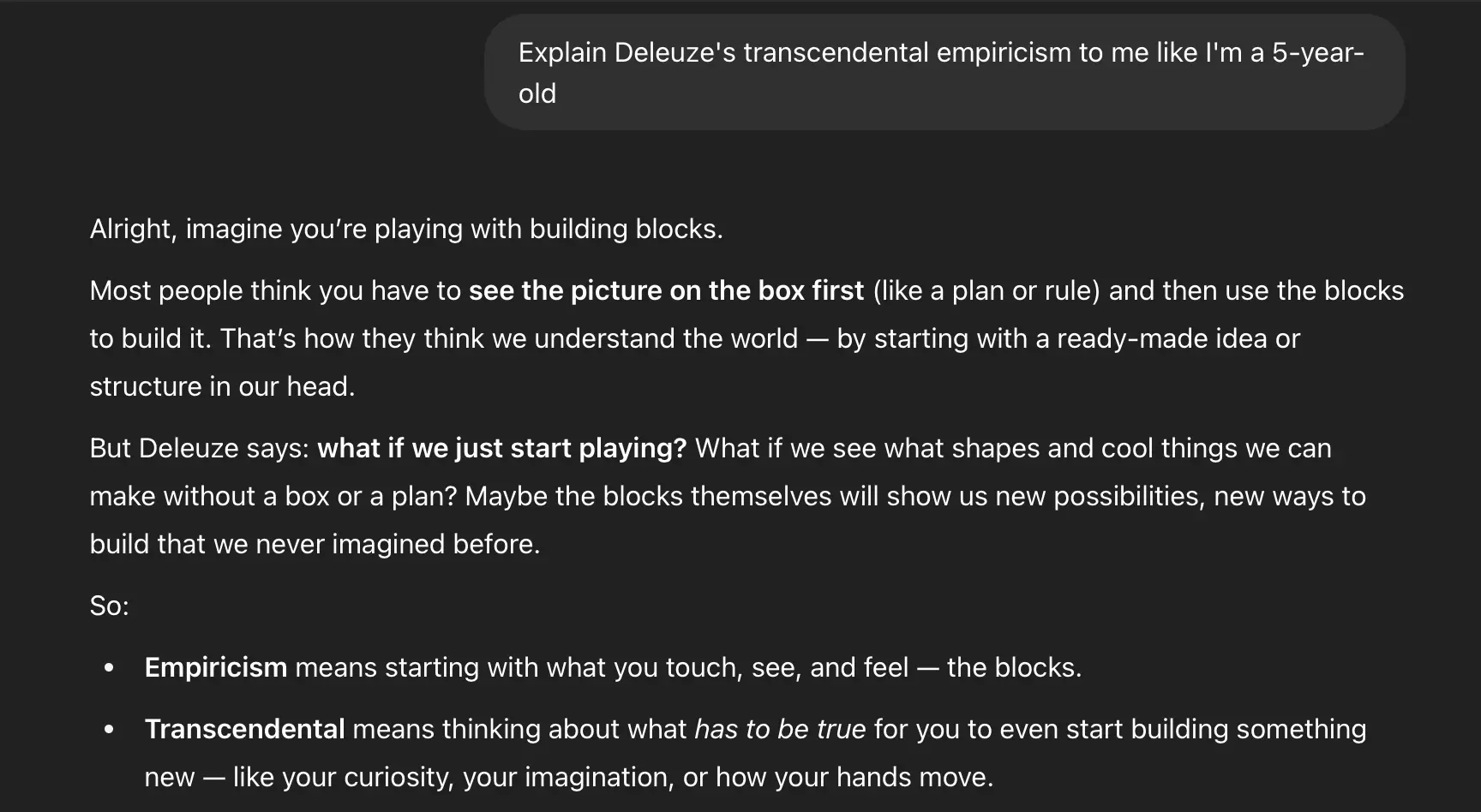
And every time you prompt it?
You teach it. It watches. It adapts. AI learns your tone, your schedule, your weird snack cravings. And soon, maybe your worldview.
An internet right in your chatbox. Tailored. Trained. Filtered.
Not the chaotic, open web of the early days, but a distilled version—compressed into sentences, fed back through models trained on everything and nothing in particular.
The internet used to be a sprawling library with too many doors and no map. Now, it’s a quiet assistant in your pocket, ready to tell you what matters to you.
It’s comforting, because it feels personal. Misleading, at times, because it’s confident even when it’s wrong. But it’s fast. Frictionless. Free—for now.
The Illusion of “Free”
Google gave us answers without asking for money. We got used to thinking it was free.
But it wasn’t. It never was.
Every search you typed, every link you clicked, every scroll down the page—that was the transaction. You paid in attention, in behavior, in data.
The questions felt personal, but the answers were part of a marketplace.
The more you clicked, the more the engine learned what to show you next.
It was a quiet kind of elegance: your curiosity fueled an entire digital economy. Every question you asked sent ripples across a vast network of advertisers, publishers, and platforms. Search wasn’t just a utility—it was a marketplace disguised as a conversation.
Then came generative AI in 2022. Suddenly, the ritual changed. No more digging through blue links, waiting for pages to load, or sifting through SEO-optimized noise. You typed a question, and it responded—instantly, confidently, in full sentences. Clean. Fast. Direct.
But if you’re not clicking, who’s paying?
That’s where the illusion begins to crack. Because even magic needs a business model.
AI doesn’t just answer. It observes. Learns. Predicts. And slowly, inevitably, it begins to sell. Not in pop-ups or banners, but in subtler, more persuasive ways. The future of answers isn’t just about what’s true—it’s about what’s profitable.
The model hasn’t changed. Only the surface has. You’re still the product. You just don’t see the price tag anymore.
Free isn’t free. It’s just paid for somewhere else.
Bing Chat shows ads. Perplexity is flirting with branded replies. Google’s new AI results? Laced with product placements. Even ChatGPT runs plugins—from travel to design.
We’re not optimizing for search results anymore. We’re optimizing for responses—for the shape and tone of an AI’s reply. And marketers are already rewriting the playbook in real time.
A/B tests replaced by simulated users. Campaign ideas born and adjusted mid-conversation. Attention captured not through banners, but through phrasing.
Insights no longer wait in dashboards or quarterly reports. They arrive mid-sentence—while you’re asking something innocent, something personal, to a chatbot that never sleeps.
What’s Next for Search With AI?
Probably a new divide.
Between tools that serve you, and tools that serve ads. Between AI that feels like a friend… and AI that works like a funnel.
We’ll have to choose: Do we want convenience, or control? Magic, or transparency? Speed, or sovereignty?
Because the next internet isn’t being built. It’s being trained. By all of us. Right now.


